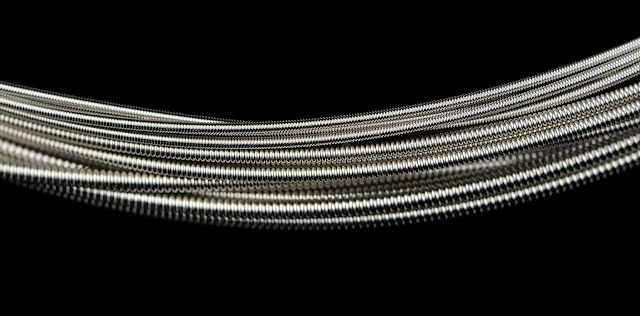Gauged Response
This week, I experimented with heavier string gauges on the 24-string Double Sub-Contraguitar. The changes were:
- Low D diapason: from .085 to .100
- Low G diapason: from .060 to .080
- Low C diapason: from .050 to .060
- High D diapason: from .024 to .026
On the Contraguitars and Subcontras with a 30-inch scale, I use gauges even heaver than those. This being a new instrument and still somewhat experimental, I'm still finding which gauges work best for it. Having a shorter 25.5-inch scale also makes an impact on gauges.
I'm usually a strong proponent of heavier gauges over lighter gauges. I expected these changes would be very positive and move things tonally more in the direction I sought. However, and much to my surprise, I preferred the lighter gauges on the low and high D diapasons. The .085 and .024 spoke better, were more articulate, slightly more responsive, and had better sustain than the heavier gauges. The overall balance between courses was better with the .085 and .024 as well.
However, the inner courses were improved with the heavier gauges.
It's all rather fascinating to me how the same gauges in the same register and tuning can react and perform so very differently on other instruments, and/or instruments having differing scale lengths. This isn't new information for me; I've seen this many times on other instruments, and this kind of phenomena is well-known and thoroughly documented in the guitar world. However, these are instruments that have never existed, so there's no documented string history or expected string behavior for them.
Of course, finding the preferred gauges for a specific instrument makes a tremendous impact on elements such as response, playability, tone, volume, articulation, definition, balance, overall feel, and more. To say that it's important to find the optimum gauges for a specific instrument is an understatement.
On the 24-string Subcontra, the octave string gauges were unchanged in this round of experimentation. Gauges for those will be entirely dependent on the tuning being utilized. I'll tackle those in the next round of string experimentation.
-kk




Comments
Post a Comment